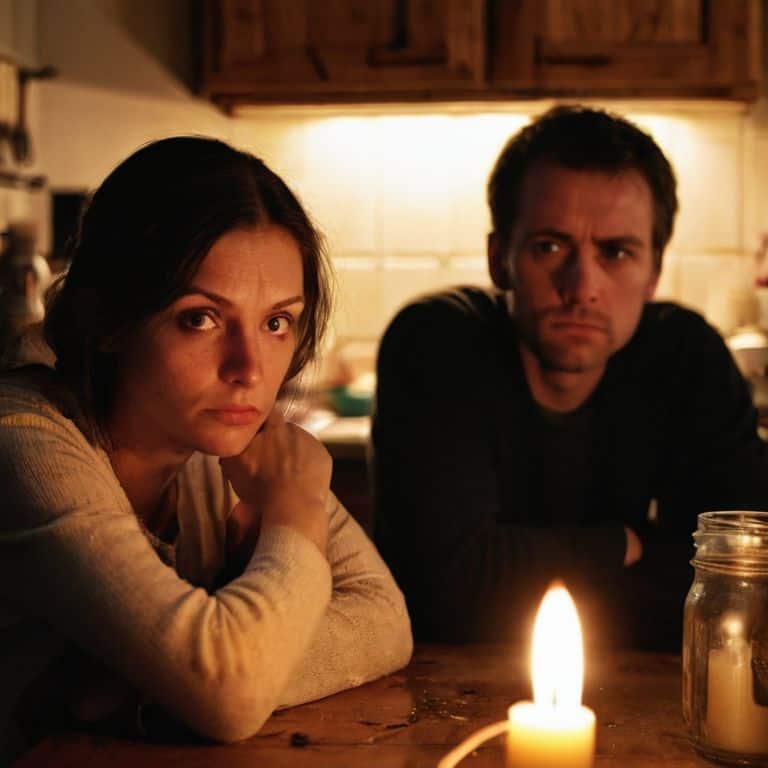I still remember the first time I witnessed the four horsemen of relationship apocalypse in action. It was during a particularly heated game night at my place, where a couple’s argument escalated from a harmless debate about board game rules to a full-blown shouting match. As I watched, I realized that their conflict wasn’t about the game at all, but about unmet needs and unresolved issues that had been simmering beneath the surface. It was a stark reminder that even the most seemingly trivial disagreements can be a symptom of deeper problems.
As a relationship coach, I’ve seen the four horsemen of relationship apocalypse – criticism, defensiveness, contempt, and stonewalling – wreak havoc on countless relationships. But I believe that by understanding the root causes of these destructive patterns, we can break free from the cycle of conflict and build stronger, more resilient relationships. In this article, I’ll share my expertise and provide you with practical tools and scripts to help you navigate difficult conversations and create a more peaceful, loving connection with your partner. My goal is to give you the skills and confidence to tackle even the toughest relationship challenges head-on, without resorting to blame or defensiveness.
Table of Contents
Slaying the Four Horsemen

To slay the beasts of betrayal, we must first understand the patterns that lead to relationship demise. I’ve seen it time and again in my work as a relationship coach – when criticism and defensiveness become the norm, it’s a slippery slope. Couples who can’t seem to escape this cycle often find themselves on the brink of disaster.
In my experience, emotional intelligence in relationships is key to breaking this cycle. By recognizing the signs of a toxic relationship, couples can take proactive steps towards healing and growth. This might involve communication strategies for couples, such as active listening and empathy, to build trust and understanding.
By implementing couples therapy techniques, such as mediation and conflict resolution, partners can learn to navigate difficult conversations with ease. It’s not about avoiding conflict altogether, but about building trust in relationships through open and honest communication. As someone who’s passionate about relationship conflict resolution, I’ve seen firsthand the power of these strategies in transforming relationships and fostering deeper connections.
Defending Against Defensiveness in Relationships
When we feel criticized, our instinct is to become defensive. This natural response can quickly escalate into a full-blown argument, causing more harm than good. I’ve seen it happen in my own relationships and with the couples I coach – a simple conversation can turn into a heated debate in a matter of seconds.
To break this cycle, it’s essential to practice active listening. By focusing on understanding our partner’s perspective, rather than just preparing our rebuttal, we can create a safer space for open communication. This helps to diffuse tension and allows us to address the issue at hand, rather than getting bogged down in defensiveness.
Taming Criticism With Emotional Intelligence
To tackle criticism, we need to understand that it often stems from unmet needs and unresolved emotions. When we feel heard and understood, we’re less likely to criticize. I’ve seen this play out in my own board game nights, where a simple _active listening_ exercise can diffuse tension and prevent criticism from escalating.
By recognizing the emotional undercurrents driving criticism, we can begin to address the root cause rather than just the symptoms. This involves developing emotional intelligence to acknowledge and validate each other’s feelings, creating a safer space for open communication and constructive feedback.
Riding Towards Deeper Connection

As we continue to ride towards deeper connection, it’s essential to focus on building trust in relationships. This can be achieved by practicing empathy and active listening, which helps to create a safe and supportive environment for open communication. By doing so, we can foster a sense of security and understanding, allowing us to navigate challenges together.
In order to strengthen our bonds, we must also develop emotional intelligence in relationships. This involves recognizing and managing our emotions, as well as being aware of our partner’s feelings. By acknowledging and validating each other’s emotions, we can prevent conflicts from escalating and work towards finding common ground. Effective communication strategies for couples are key to resolving conflicts in a healthy and constructive manner.
By implementing these strategies, we can transform our relationships into a sanctuary of trust, empathy, and understanding. It’s crucial to recognize the signs of a toxic relationship and take proactive steps to address them. Through couples therapy techniques and a commitment to growth, we can overcome obstacles and cultivate a deeper, more meaningful connection with our partner.
Building Trust After Stonewalling in Relationships
When we’ve been stonewalled in a relationship, it can be challenging to rebuild trust. I’ve seen it time and again – the silence can be deafening, and the hurt can run deep. To start healing, it’s essential to address the unmet needs that led to the stonewalling in the first place. This means having an open and honest conversation with your partner, creating a safe space for both of you to express your feelings and concerns.
By doing so, you can work together to establish a stronger foundation, one that’s built on mutual understanding. This involves actively listening to each other, acknowledging each other’s perspectives, and making a conscious effort to communicate effectively. As you navigate this process, remember that rebuilding trust takes time, effort, and patience from both parties.
Healing From Contempt With Couples Therapy
When it comes to healing from contempt, it’s essential to acknowledge the hurt and resentment that has built up over time. I’ve seen couples who have been together for years struggle to reconcile their differences, and it’s often because they haven’t addressed the underlying issues that led to contempt in the first place.
In my experience, couples therapy can be a game-changer in helping partners work through their issues and develop a more empathetic understanding of each other’s needs and feelings. By creating a safe and non-judgmental space for open communication, couples can begin to break down the walls of contempt and rebuild their relationship on a foundation of trust and mutual respect.
Taming the Beasts: 5 Essential Tips to Overcome the Four Horsemen of Relationship Apocalypse
- Practice self-awareness to recognize when criticism, defensiveness, contempt, or stonewalling is emerging in your interactions, and take a step back to reassess the conversation
- Use ‘I’ statements instead of ‘you’ statements to express feelings and avoid blame, helping to diffuse tension and prevent escalations
- Schedule regular ‘state of the union’ conversations to address grievances and unmet needs, fostering a culture of open communication and empathy
- Develop a growth mindset, acknowledging that relationships involve growth and mistakes, and that conflicts can be opportunities for deeper understanding and connection
- Cultivate a culture of appreciation and gratitude, regularly expressing thanks and admiration for your partner, to help counterbalance the negative effects of the four horsemen and strengthen your bond
Key Takeaways for a Deeper Connection
Taming criticism, defensiveness, contempt, and stonewalling requires acknowledging and addressing the underlying emotions and unmet needs that drive these behaviors
By applying emotional intelligence, practicing active listening, and engaging in open communication, couples can transform potential relationship pitfalls into opportunities for growth and intimacy
Riding towards deeper connection involves a commitment to continuous learning, self-reflection, and mutual support, ultimately fostering a culture of trust, empathy, and understanding in our relationships
A Warning from the Frontlines
The four horsemen of relationship apocalypse don’t just predict doom, they create it – through criticism, defensiveness, contempt, and stonewalling, we inadvertently build walls that block the very love and connection we crave.
Mia Campbell
From Apocalypse to Awakening

As we’ve navigated the realm of the four horsemen of relationship apocalypse, it’s become clear that taming criticism, defending against defensiveness, healing from contempt, and building trust after stonewalling are not just individual battles, but interconnected components of a larger war. By recognizing the signs of these destructive patterns and actively working to replace them with emotional intelligence, active listening, and vulnerability, we can begin to shift the dynamics of our relationships and move towards a more harmonious, loving connection.
So, as you ride forth from this journey, remember that the true power lies not in avoiding the four horsemen, but in embracing the journey of growth and transforming your relationships into beacons of hope, trust, and understanding. By doing so, you’ll not only save your relationships from the brink of disaster, but also cultivate a deeper sense of purpose, belonging, and love – and that, my friends, is the greatest apocalypse of all: the end of fear, and the beginning of a brighter, more compassionate you.
Frequently Asked Questions
How can I recognize when the four horsemen of relationship apocalypse are present in my own relationships?
To recognize the four horsemen in your own relationships, pay attention to when you or your partner criticizes, becomes defensive, shows contempt, or stonewalls. Notice if conversations feel tense or strained, or if you’re avoiding certain topics altogether. Ask yourself: are we communicating with empathy and respect, or are we unleashing these destructive patterns?
What are some practical strategies for overcoming criticism, defensiveness, contempt, and stonewalling in my daily interactions with my partner?
To overcome these hurdles, I recommend using “I” statements to express feelings, actively listening to your partner, and taking breaks when emotions run high. Practice empathy by acknowledging each other’s perspectives, and schedule regular “us” time to foster connection and understanding.
Can the four horsemen of relationship apocalypse be fully eliminated, or is it more about learning to manage and work through them in a healthy way?
Honestly, I don’t think the four horsemen can be completely eliminated, but we can learn to recognize and manage them in a healthy way. It’s about developing emotional intelligence, communication skills, and a willingness to work through tough moments together, rather than trying to avoid them altogether.
